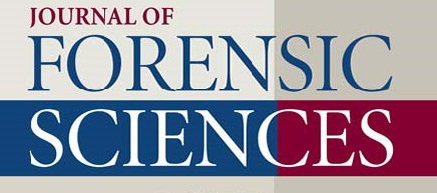Commentary: Traceology, Criminalistics, and Forensic Science
The Journal of Forensic Sciences has published a new article co-authored by Microtrace Senior Research Microscopist Jack Hietpas, Ph.D. “Traceology, criminalistics, and forensic science” explores the modern and all-too-common expectation of criminalists as glorified laboratory technicians, who are expected to provide binary non-thinking answers to specific requests from prosecutors and investigators. Instead, the authors seek to explore and recapture the essence of traditional criminalistics, which was defined by pro-active problem solving.
Microtrace has long emphasized the importance of a creative, thoughtful, and rigorous scientific approaches to real-world problems- it is an essential element of our core philosophy. Microtrace was founded upon the premise that each sample should be analyzed as a unique scientific challenge. In an era when most forensic and service laboratories rely upon predefined protocols and tests, the analytical results obtained are, by design, limited in scope. For this reason, we have found that there remains a need for sample-driven analysis, performed at the highest scientific level, capable of providing a level of analysis beyond that of a typical forensic lab. It is through this approach that Microtrace has built a world-wide reputation for providing not just analyses but answers to specific questions. To read about some of these successes, read about Microtrace in the news or see some of our case studies.
To access the paper online, please visit the Wiley Online Library; otherwise, please contact us and we will be happy to provide a copy of the article.
Abstract
Traceology, criminalistics, and forensic science, Ralph R. Ristenbatt III MS, Jack Hietpas PhD, Peter R. De Forest DCrim, Pierre A. Margot PhD, Dhc, First published: 15 August 2021
https://doi.org/10.1111/1556-4029.14860
There is a serious issue within the forensic science community, which even extends outside of the field. The role of the scientist in the investigation of crime has been increasingly confined to the laboratory, which has been accompanied by the conflation of the terms forensic science and criminalistics. This unfortunate situation has been festering for years. To make matters worse, the era of the proactive, problem-defining, criminalist (generalist) is waning, and possibly over. Present-day “criminalists” are treated as little more than reactive, protocol-constrained, laboratory technicians, with few, if any, consequential crime scene roles. In most cases, these “criminalists” merely respond to routine requests from prosecutors and police. The absence of science at the front end of forensic investigations, i.e., the scene, has resulted in biased, ineffective, inefficient, and/or erroneous outcomes with immediate and long-term societal impacts. To disentangle this imbroglio, we propose the use of another term, traceology, which has seen limited use worldwide except in the field of archaeology. With respect to criminalistics, this term has been previously proposed by Margot (20–21). Traceology is an historical science, dealing with the examination, analysis, and scientific interpretation of event traces (signs or remnants) of earlier activities. In this commentary, we define and redefine familiar, but ambiguous, terms and concepts with the hope of recapturing the essence of criminalistics (32), which we suggest is best termed traceology.
How May We Help You?
Contact usto discuss your project in more detail.








